Do West Virginians have a right to clean water?
BY JAMES HUG S.J | January 14, 2014
Do West Virginians have a right to clean water? Beyond that, do West Virginia waterways have the right to be protected from polluters? Do rainforests or the Great Barrier Reef have the right to survive? Can the court systems of the countries of the world be used to protect Mother Nature’s rights?
It may sound like a stretch of the imagination, but an important gathering of international leaders in the Global Alliance for the “Rights of Nature” Movement is taking place this week (January 13-17) in Otavalo and Quito, Ecuador. According to a press release from the Global Alliance, the meeting’s two purposes are “to analyze the experiences of communities in Ecuador, Bolivia, and the United States that have already implemented ‘Rights of Nature’ laws and to devise a unified global strategy for advancing the Rights of Nature movement around the world.
Few people know the U.S. is a leader in this new effort to find a way to oppose ecological degradation. Local municipalities in the United States were the first to adopt laws establishing legal structures that recognized Rights of Nature, beginning in 2006 with Tamaqua Borough in Schuylkill County, Pennsylvania. Since then more than two-dozen U.S. communities have adopted local laws recognizing Rights of Nature, including Pittsburgh, Pennsylvania, which in November of 2010 became the first major municipality in the United States to do so.
In addition, nearly 100 grassroots organizations in the Americas, Africa, Asia, Australia, and Europe are members of the Global Alliance for Rights of Nature, advancing the Rights of Nature movement in their municipalities, counties, provinces, and countries. Why don’t we as American citizens know more about this movement? Why aren’t our universities active in this movement? Our law schools?
The four-dozen leaders attending the summit represent diverse disciplines, cultures, nations, and bioregions. Among the attendees are Indian physicist Vandana Shiva; South African lawyer and author Cormac Cullinan; U.S. Catholic Sister Patricia Siemen, OP; North American indigenous leader Tom Goldtooth; former Bolivian U.N. ambassador Pablo Solón; and U.S. community rights attorney Thomas Linzey. The group as a whole is comprised of economists, lawyers, scientists, indigenous leaders, community activists, nuns, actors, authors, and public officials hailing from Australia, Switzerland, South Africa, United States, Spain, Canada, India, Romania, Bolivia, Argentina, and England, as well as Ecuador.
The summit will conclude on Friday, January 17, with a public Tribunal in Quito where key Rights of Nature cases will be heard, including the Chevron/Texaco case in Ecuador, the oil exploitation of Yasuní-ITT in Ecuador’s rainforest, and the destruction of Australia’s Great Barrier Reef. Drawing on precedents established in other successful Rights of Nature cases – such as the one finding that the rights of the Vilcabamba River had been violated by pollution – the Tribunal will model how to adjudicate the rights of nature in courts of law.
Sr. Elise Garcia, OP, Communications Director for the Adrian Dominican Sisters in the U.S. will be blogging daily from the Global Summit for NCR’s Eco-Catholic blog. You can follow it at http://ncronline.org/blogs/eco-catholic.
For more from the Global Alliance, see www.therightsofnature.org.
James E. Hug, S.J., has a long history working in social ethics and social justice advocacy in the Catholic community. He served 24 years as the President of the Center of Concern, a Washington, DC based social justice institute rooted in Catholic social tradition, working for greater economic, social, and ecological justice globally. He holds a doctoral degree in Christian ethics from the University of Chicago and a master’s degree in Christian spirituality from St. Louis University.
Fr. Hug’s research has focused on issues of faith and economic justice and he has lectured and directed workshops throughout the U.S. and in Europe, Asia, Africa, and Australia. Currently he serves as sacramental minister for the Adrian Dominican Sisters and writes on issues of spirituality for social transformation in these difficult times. His blog, “Truth that does Justice,” can be found on the website for the Dominican Center: Spirituality for Mission, www.dominicancenter.org.
Past publications have included Catholic Social Teaching: Our Best Kept Secret, Social Revelation: Profound Challenge for Christian Spirituality, and Tracing the Spirit: Communities, Social Action, and Theological Reflection. Jim has also written chapters for Globalization and Catholic Social Thought: Present Crisis, Future Hope and The Pastoral Circle Revisited: A Critical Quest for Truth and Transformation.
Fr. Hug’s research has focused on issues of faith and economic justice and her has lectured and directed workshops throughout the U.S. and in Europe, Asia, Africa and Australia. He was the editor of the Center of Concern’s “Catholic Social Teaching: Our Best Kept Secret, author of Social Revelation: Profound Challenge for Christian Spirituality,” and the editor of “Tracing the Spirit: Communities, Social Action, and Theological Reflection.” Jim has also written chapters for “Globalization and Catholic Social Thought: Present Crisis, Future Hope” and “The Pastoral Circle Revisited: A Critical Quest for Truth and Transformation.”

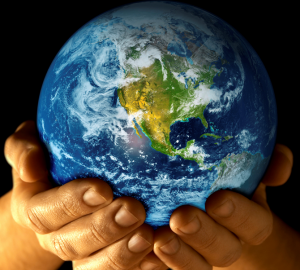
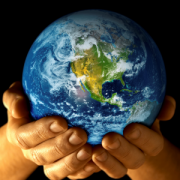

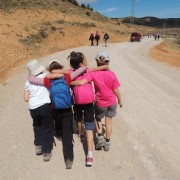
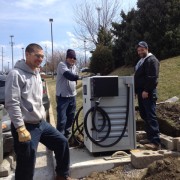
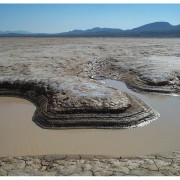

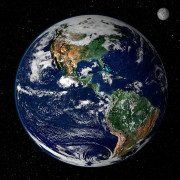



This is a really a good blog . It is used to protect the water from being polluated.Keep on posting similar blog through which we are getting information which is helpful for us.